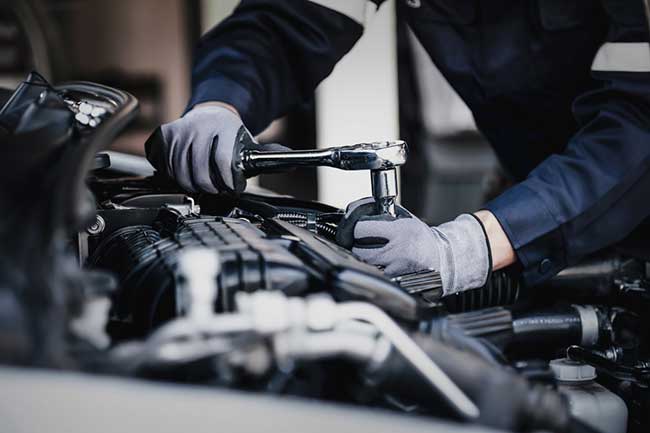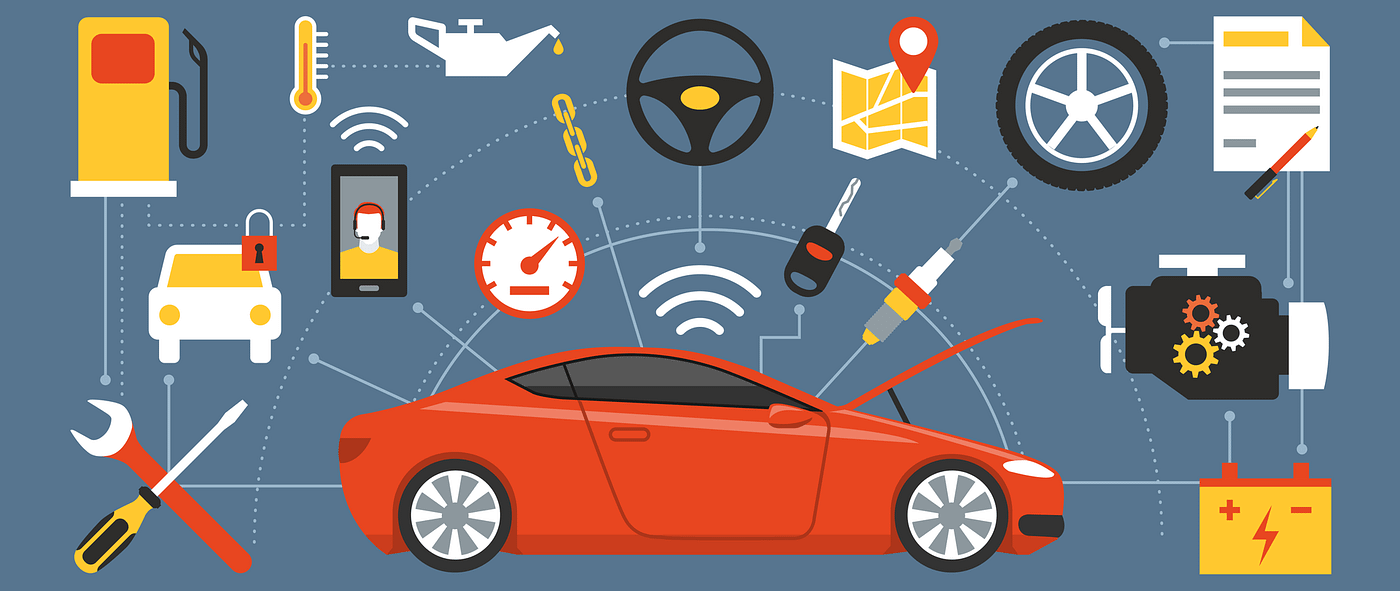All Categories
Featured
Accountable for synchronizing the rotation of the crankshaft and camshaft, the timing belt makes certain the engine's shutoffs close and open at the correct times throughout the combustion process. If the timing belt falls short, it can result in severe engine damage.
What Is a Timing Belt? The timing belt is a long, toothed rubber or composite belt that links the crankshaft to the camshaft(s) in an inner combustion engine. Its task is to keep the engine's shutoffs and pistons in sync, making sure the engine runs successfully. The timing belt additionally controls various other vital engine functions like the water pump and the power guiding pump, depending upon the vehicle.
![]()
Without the proper timing, the engine's pistons and valves can collide, resulting in pricey and comprehensive damage. Changing the timing belt on schedule is one of the best means to guarantee your engine runs at its best and avoid pricey repairs.
Why Timing Belt Replacement Issues. Protecting Against Catastrophic Engine Damage: One of the most substantial risk of not replacing a worn timing belt is engine failing. If the timing belt breaks while the engine is running, the camshaft and crankshaft can come to be misaligned, causing the shutoffs and pistons to collide. This can result in curved shutoffs, harmed pistons, or perhaps a ruined engine. Replacing the timing belt at the recommended periods is the most effective means to prevent such disastrous damage, conserving you from the stress and anxiety and high cost of engine repair work or substitute.
![]()
Maintaining Engine Efficiency: A timing belt that's in great condition makes certain that all engine parts operate in perfect consistency. If the timing belt is used or extended, it can create the engine to lose power, experience harsh idling, or battle to begin. By changing the timing belt frequently, you can keep your engine performing at peak effectiveness, which helps preserve optimal gas economic situation and efficiency.
Avoiding Unforeseen Break downs: A broken timing belt can trigger your engine to quit suddenly, potentially leaving you stranded in the middle of a trip. By replacing your timing belt on schedule, you decrease the risk of abrupt breakdowns that might leave you in a harmful or inconvenient scenario. Normal maintenance decreases the possibilities of experiencing these type of disruptions, aiding you remain on the roadway longer without worrying about your engine falling short.
Affordable Upkeep: Timing belt replacement is much more economical than fixing or replacing an engine that's been damaged due to a timing belt failing. While the price of replacing the timing belt may vary relying on your vehicle and its place, it is much more affordable than the costs connected with major engine repair work or substitutes. Changing your timing belt at the suggested periods can save you a substantial quantity of money over the long term by preventing damage to your engine.
When Should You Change Your Timing Belt? The timing belt doesn't last permanently, and the majority of suppliers recommend replacing it in between 60,000 and 100,000 miles. However, the precise timing depends upon your vehicle's make, design, and driving problems, so it's essential to inspect your proprietor's manual for certain assistance.
Indications that your timing belt may need interest include uncommon engine sounds (such as a piercing whining or ticking audio), trouble beginning the engine, or a decline in engine performance. If you discover any of these indicators, it's essential to have the timing belt examined by a professional mechanic.
![]()
Verdict. The timing belt is a important yet tiny element of your engine, and normal replacement is crucial to keeping your car's performance and protecting against pricey damage. By remaining on top of timing belt maintenance, you'll ensure your engine runs successfully, avoid unexpected failures, and shield your cars and truck from significant repairs. Watch on your car's advised timing belt substitute timetable, and always seek advice from with a trusted technician to keep your engine running smoothly for several years ahead.
What Is a Timing Belt? The timing belt is a long, toothed rubber or composite belt that links the crankshaft to the camshaft(s) in an inner combustion engine. Its task is to keep the engine's shutoffs and pistons in sync, making sure the engine runs successfully. The timing belt additionally controls various other vital engine functions like the water pump and the power guiding pump, depending upon the vehicle.

Without the proper timing, the engine's pistons and valves can collide, resulting in pricey and comprehensive damage. Changing the timing belt on schedule is one of the best means to guarantee your engine runs at its best and avoid pricey repairs.
Why Timing Belt Replacement Issues. Protecting Against Catastrophic Engine Damage: One of the most substantial risk of not replacing a worn timing belt is engine failing. If the timing belt breaks while the engine is running, the camshaft and crankshaft can come to be misaligned, causing the shutoffs and pistons to collide. This can result in curved shutoffs, harmed pistons, or perhaps a ruined engine. Replacing the timing belt at the recommended periods is the most effective means to prevent such disastrous damage, conserving you from the stress and anxiety and high cost of engine repair work or substitute.

Maintaining Engine Efficiency: A timing belt that's in great condition makes certain that all engine parts operate in perfect consistency. If the timing belt is used or extended, it can create the engine to lose power, experience harsh idling, or battle to begin. By changing the timing belt frequently, you can keep your engine performing at peak effectiveness, which helps preserve optimal gas economic situation and efficiency.
Avoiding Unforeseen Break downs: A broken timing belt can trigger your engine to quit suddenly, potentially leaving you stranded in the middle of a trip. By replacing your timing belt on schedule, you decrease the risk of abrupt breakdowns that might leave you in a harmful or inconvenient scenario. Normal maintenance decreases the possibilities of experiencing these type of disruptions, aiding you remain on the roadway longer without worrying about your engine falling short.
Affordable Upkeep: Timing belt replacement is much more economical than fixing or replacing an engine that's been damaged due to a timing belt failing. While the price of replacing the timing belt may vary relying on your vehicle and its place, it is much more affordable than the costs connected with major engine repair work or substitutes. Changing your timing belt at the suggested periods can save you a substantial quantity of money over the long term by preventing damage to your engine.
When Should You Change Your Timing Belt? The timing belt doesn't last permanently, and the majority of suppliers recommend replacing it in between 60,000 and 100,000 miles. However, the precise timing depends upon your vehicle's make, design, and driving problems, so it's essential to inspect your proprietor's manual for certain assistance.
Indications that your timing belt may need interest include uncommon engine sounds (such as a piercing whining or ticking audio), trouble beginning the engine, or a decline in engine performance. If you discover any of these indicators, it's essential to have the timing belt examined by a professional mechanic.

Verdict. The timing belt is a important yet tiny element of your engine, and normal replacement is crucial to keeping your car's performance and protecting against pricey damage. By remaining on top of timing belt maintenance, you'll ensure your engine runs successfully, avoid unexpected failures, and shield your cars and truck from significant repairs. Watch on your car's advised timing belt substitute timetable, and always seek advice from with a trusted technician to keep your engine running smoothly for several years ahead.
Latest Posts
Grab Exclusive Auto Repair Offers in Chicago at Montclare Auto Repair
Published May 25, 25
1 min read
Explore WyHy FCU – Top Benefits for Your Future
Published May 23, 25
1 min read
Discover Your Financial Partner at WyHy – Essential Perks for Your Financial Success
Published May 21, 25
1 min read
More
Latest Posts
Grab Exclusive Auto Repair Offers in Chicago at Montclare Auto Repair
Published May 25, 25
1 min read
Explore WyHy FCU – Top Benefits for Your Future
Published May 23, 25
1 min read
Discover Your Financial Partner at WyHy – Essential Perks for Your Financial Success
Published May 21, 25
1 min read